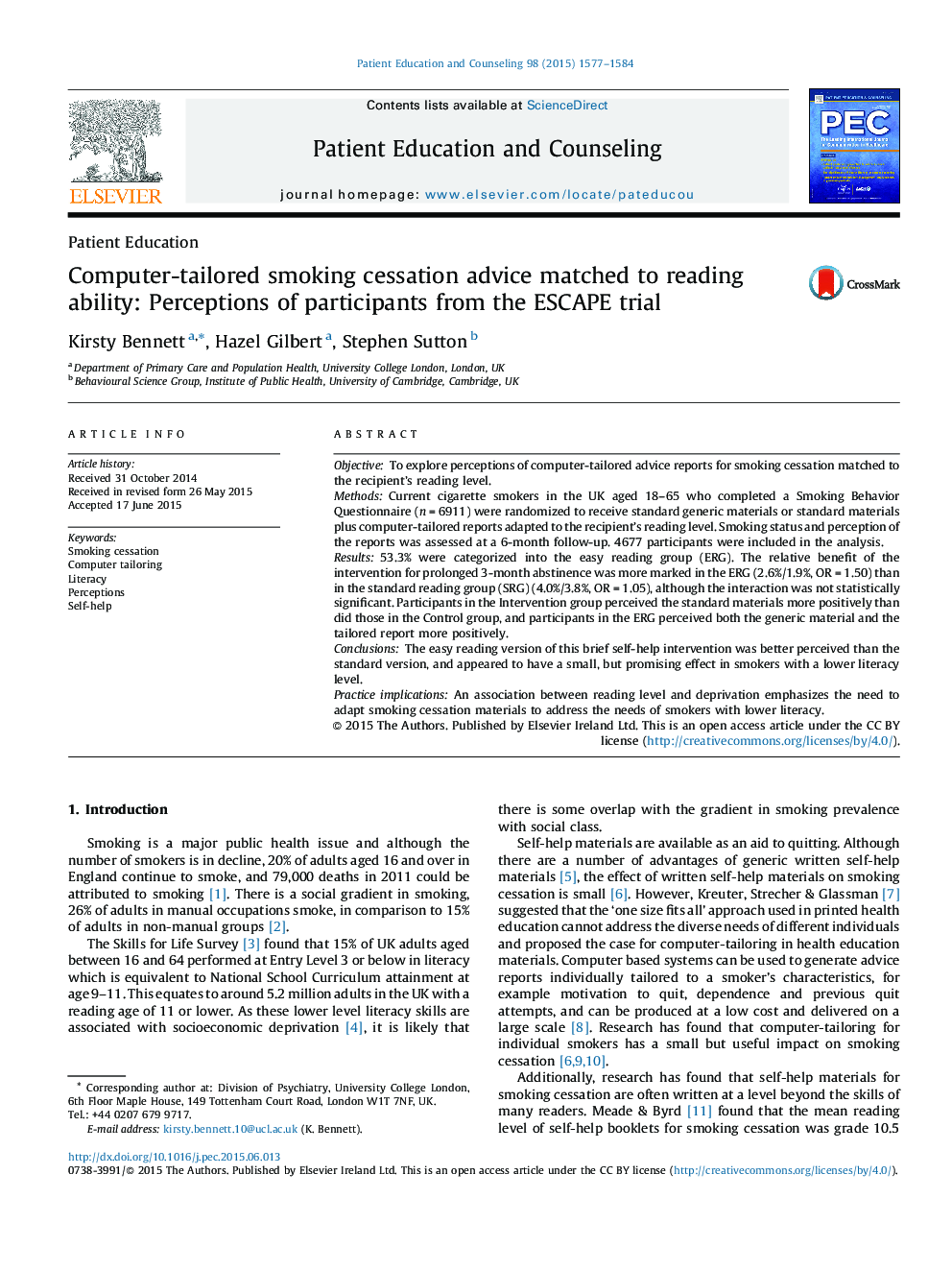| Article ID | Journal | Published Year | Pages | File Type |
|---|---|---|---|---|
| 6152790 | Patient Education and Counseling | 2015 | 8 Pages |
â¢Many smokers do not have high literacy skills.â¢Self-help materials tailored to reading level showed some benefit for lower literacy smokers.â¢The easy reading version of tailored self-help was better perceived than the standard version.â¢Smoking cessation materials should address the needs of smokers with lower literacy.
ObjectiveTo explore perceptions of computer-tailored advice reports for smoking cessation matched to the recipient's reading level.MethodsCurrent cigarette smokers in the UK aged 18-65 who completed a Smoking Behavior Questionnaire (n = 6911) were randomized to receive standard generic materials or standard materials plus computer-tailored reports adapted to the recipient's reading level. Smoking status and perception of the reports was assessed at a 6-month follow-up. 4677 participants were included in the analysis.Results53.3% were categorized into the easy reading group (ERG). The relative benefit of the intervention for prolonged 3-month abstinence was more marked in the ERG (2.6%/1.9%, OR = 1.50) than in the standard reading group (SRG) (4.0%/3.8%, OR = 1.05), although the interaction was not statistically significant. Participants in the Intervention group perceived the standard materials more positively than did those in the Control group, and participants in the ERG perceived both the generic material and the tailored report more positively.ConclusionsThe easy reading version of this brief self-help intervention was better perceived than the standard version, and appeared to have a small, but promising effect in smokers with a lower literacy level.Practice implicationsAn association between reading level and deprivation emphasizes the need to adapt smoking cessation materials to address the needs of smokers with lower literacy.
